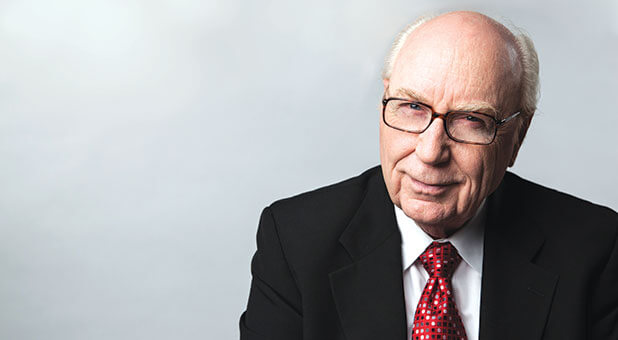1) Humility
Jesus began the Sermon on the Mount by saying, “Blessed are the poor in spirit, for theirs is the kingdom of heaven” (Matt. 5:3). I am told that, in the Greek text, Matthew could have chosen a different word for “poor.” One kind of poverty is that of a person just getting by. The other kind describes a destitute person who will die unless someone gives them food, shelter and clothing. It is this second meaning that is used here for “poor”—”Blessed are the destitute-poor.”
I became a pastor in Southern California at age 29. I grew up as a missionary kid, pastor’s kid and evangelist’s kid (same parents, just different roles at different times!). I received the finest theological training in the world, completing my doctorate at Fuller Theological Seminary months before taking the pastorate.
The church had been through a division and was down to about 60 adults. I thought I was the answer to what that church needed. After all, didn’t I have a great heritage and education? My mother had gone as a single missionary to China and Tibet in 1924 when she was only 26 years old. My father went 8 years later. They courted on the boat and married when they reached Shanghai, setting off for the remote interior the day after their wedding.
Heritage? Check. Training? Definitely. Surely I could come in and save this struggling church.
But in the first six months we lost a third of the congregation. We couldn’t meet our bills. I began meeting with the deacons on Saturday mornings to eat breakfast, pray and decide what bills to pay that week. We needed $400 a week to break even but were only receiving about $200. And unfortunately, we’d
already burned through all the meager cash reserves of the church.
“Pastor,” one of the deacons said, “we haven’t made a single missionary commitment that we pledged in the six months you have been pastor.”
It was true. Our commitments totaled $257 a month, but all the missionaries were in the $5 to $10 pledge range. We need it more than they, I had thought.
This deacon had other plans. “I think we ought to take whatever comes in the offering tomorrow and pay at least two months’ worth of missionary commitments before we pay a single bill.”
The others thought that was a great idea, prayed over it and then said, “You understand we won’t pay your salary either.” I hadn’t understood that (and we were selling furniture out of the house to put food on the table), but I went along.
The next day, after the morning and evening offerings were counted they totaled $1,354! It was such a miracle! The next morning while praying in my office, I asked the Lord, “What is the lesson You want me to learn?” I felt the Holy Spirit say to me, “George Wood, I am not interested in building this church on your personality. I’m interested in building it on Mine, and if you put Me front and center I’ll take care of you.”
And He did. For the next 17 years the church grew until our missionary commitments were $45,000 a month.
There is much fruitfulness today in the Assemblies of God, both in the U.S. and worldwide. In the past six years alone we’ve seen over 2,000 new churches planted in America. But there is no room for pride. It’s the Lord’s work, and it is marvelous in our eyes (Ps. 118:23). The Lord has been so good to us.
This Pentecostal movement began in humble places of worship, among humble people. Scripture teaches us that “God resists the proud, but gives grace to the humble” (1 Pet. 5:5). In the same verse we are told to “be clothed with humility.” We must be careful as Pentecostals that we never boast about ourselves, our members and our empowerment. If anyone would boast, let it be of Christ (2 Cor. 10:17).
When John Ashcroft, my lifelong friend, was confirmed by the United States Senate as Attorney General, I said to him, “If your Dad were alive, he would be so proud of you.”
John instantly corrected me, “Oh, George, Dad would never use that word proud; he would say grateful.”
The poor in spirit get the kingdom. It’s nothing in our hands that we bring. As Mother Teresa once said: “God wants to show His greatness by using nothingness. … It is His work. I am like a little pencil in His hand. That is all. He does the thinking. He does the writing. The pencil has nothing to do with it. The pencil has only to be allowed to be used. In human terms, the success of our work should not have happened.”
Humility makes us totally dependent on the Lord. We remember His words that without Him we can do nothing.














































